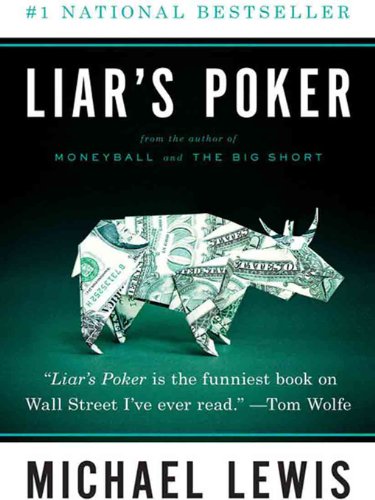Notes from Michael Lewis’s first national bestseller
Date read: 1/8/2023
Lewis found himself in the middle of the 1980s investment banking craze. It stuck out to me when he mentioned the “zero sum” nature of the industry—putting money in the firms pockets largely by taking it from their customers, using insider information to beat the “efficient” market, and the competition within Solomon Brothers itself. Naval always makes the point that true wealth is positive sum; you’re generating value to the world, which was the dilemma Lewis talks about in the Epilogue and the reason he ended up leaving the firm even though he could’ve become a millionaire in a matter of a couple more years.
Asymmetrical information.
When things grow too quickly they burst—markets, companies, etc.
Ask for forgiveness instead of permission.
Seek out good mentors—emulate and iterate.
Do the opposite of whatever everyone else is doing.
Page 43:
Knowing about markets is knowing about other people’s weaknesses.
How a Solomon trader thought (page 110):
He forgot whatever it was that he wanted to do for a minute and put his finger on the pulse of the market. If the market felt fidgety, if people were scared or desperate, he herded them like sheep into a corner, then made them pay for their uncertainty. He sat on the market until it puked gold coins. Then he thought about what he wanted to do.
Quote from Howie Rubin on blackjack, but mimics what Buffet and Munger would say on life (page 156):
There are actually times when you have a statistical advantage, and that is when you make the big bets.
On the Russians (page 203):
There are, in fact, little bald men who sit in an office in Moscow and start market rumors, not to undermine capitalism but to make their bets come right.
The insult that some people are “born to be customers” (page 213).
Lewis had a friend and mentor who was a brilliant trader. He calls him Alexander in the book. Alexander’s two primary patterns of trading (pages 217-219):
- When everyone’s going right, go left
- During major event, look away from the initial focus on secondary and tertiary effects
- Example: Nuclear reactor explosion. Less supply of nuclear power? Demand for oil will be up.
Made me think of Charlie Munger’s often quoted “consequences of consequences” quote.
Solomon fixed Lewis’s “money belief” (page 308):
For me, however, the belief in the meaning of making dollars crumbled; the proposition that the more money you earn, the better the life you are leading was refuted by too much hard evidence to the contrary.

Leave a comment